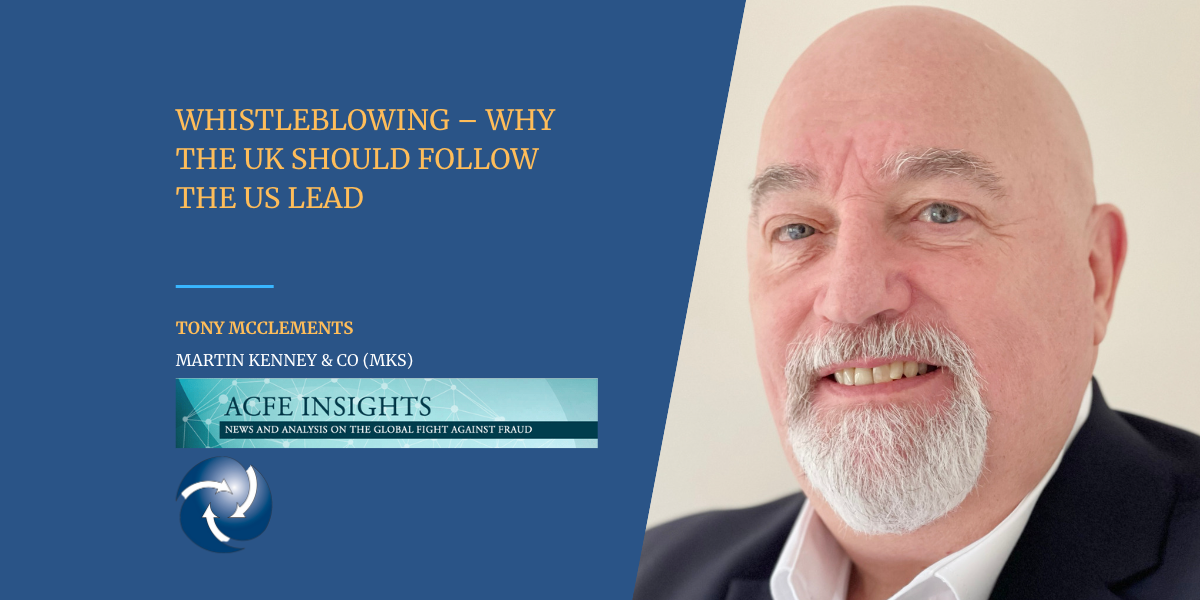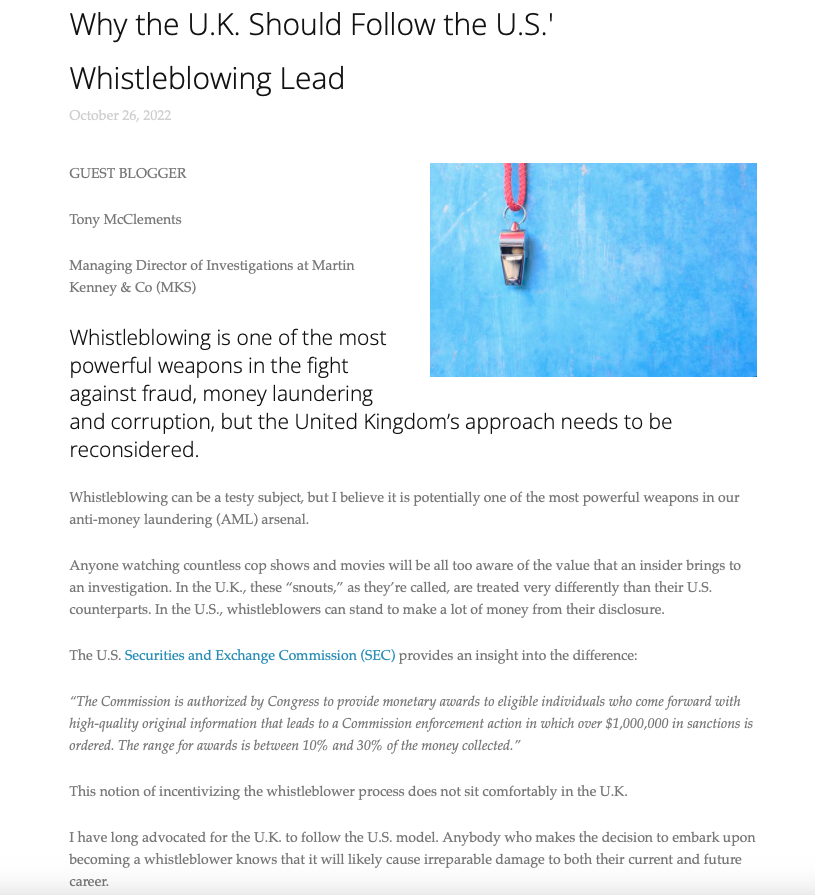Whistleblowing is one of the most powerful weapons in the fight against fraud, money laundering and corruption, but the United Kingdom’s approach needs to be reconsidered, argues our head of investigations, Tony McClements – exclusively for the Association of Certified Fraud Examiners (ACFE) (excerpt below) ⬇️
Why the U.K. Should Follow the U.S.’ Whistleblowing Lead
Whistleblowing is one of the most powerful weapons in the fight against fraud, money laundering and corruption, but the United Kingdom’s approach needs to be reconsidered.
Whistleblowing can be a testy subject, but I believe it is potentially one of the most powerful weapons in our anti-money laundering (AML) arsenal.
Anyone watching countless cop shows and movies will be all too aware of the value that an insider brings to an investigation. In the U.K., these “snouts,” as they’re called, are treated very differently than their U.S. counterparts. In the U.S., whistleblowers can stand to make a lot of money from their disclosure.
The U.S. Securities and Exchange Commission (SEC) provides an insight into the difference:
“The Commission is authorized by Congress to provide monetary awards to eligible individuals who come forward with high-quality original information that leads to a Commission enforcement action in which over $1,000,000 in sanctions is ordered. The range for awards is between 10% and 30% of the money collected.”
This notion of incentivizing the whistleblower process does not sit comfortably in the U.K. …
Read more on the ACFE Insights blog
Tony McClement is Managing Director of Investigations at MKS


